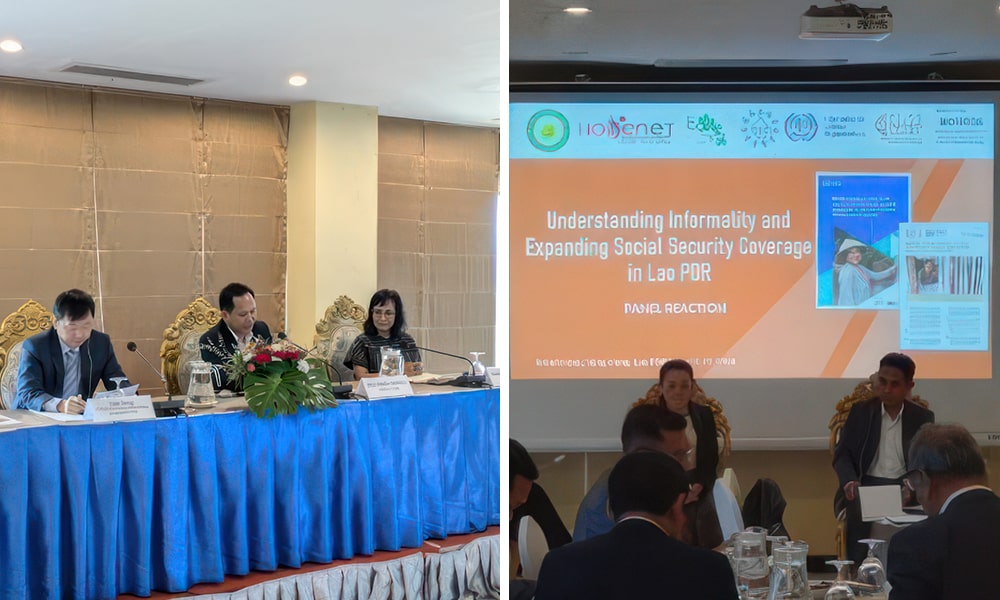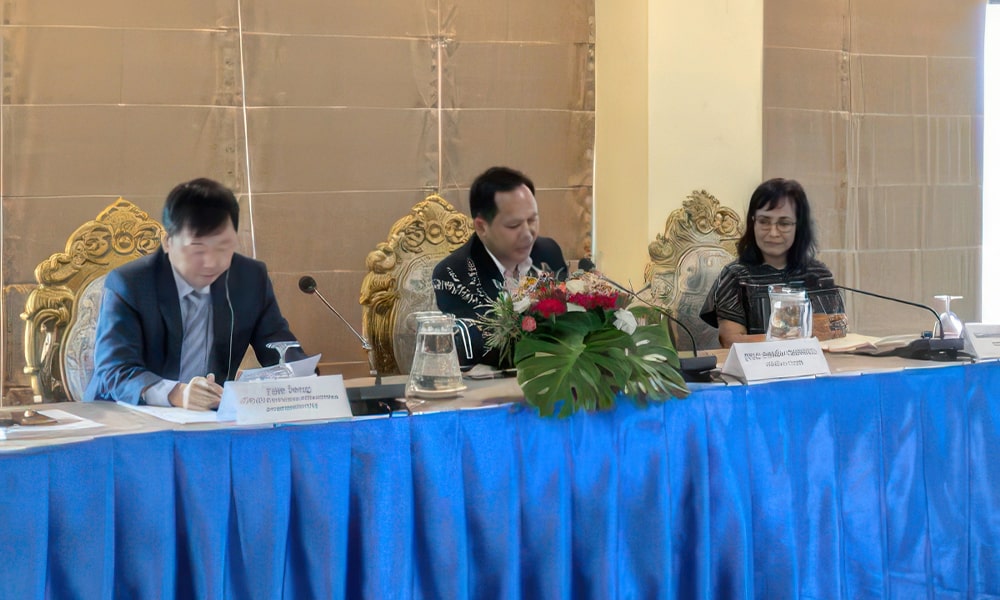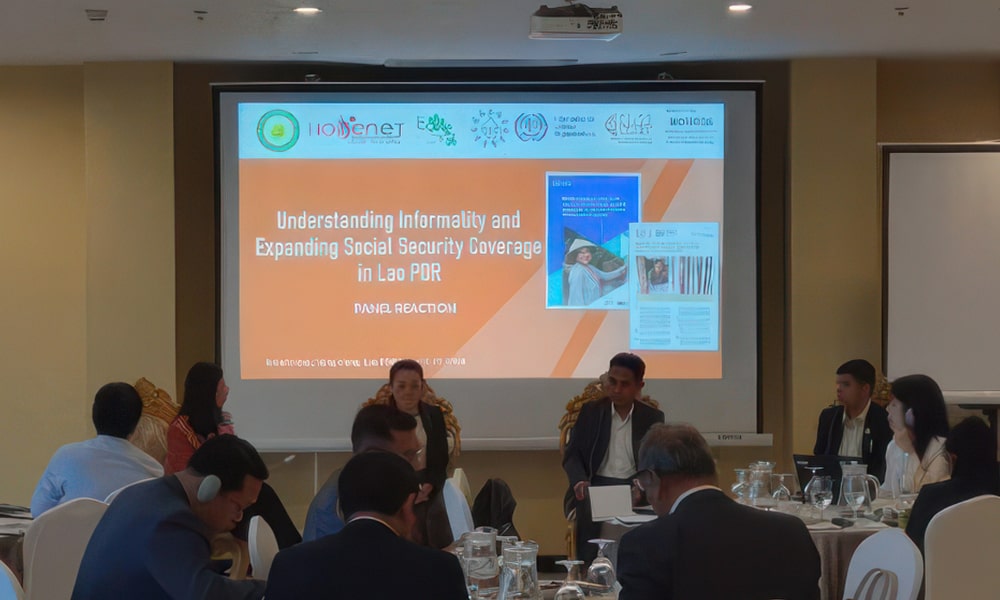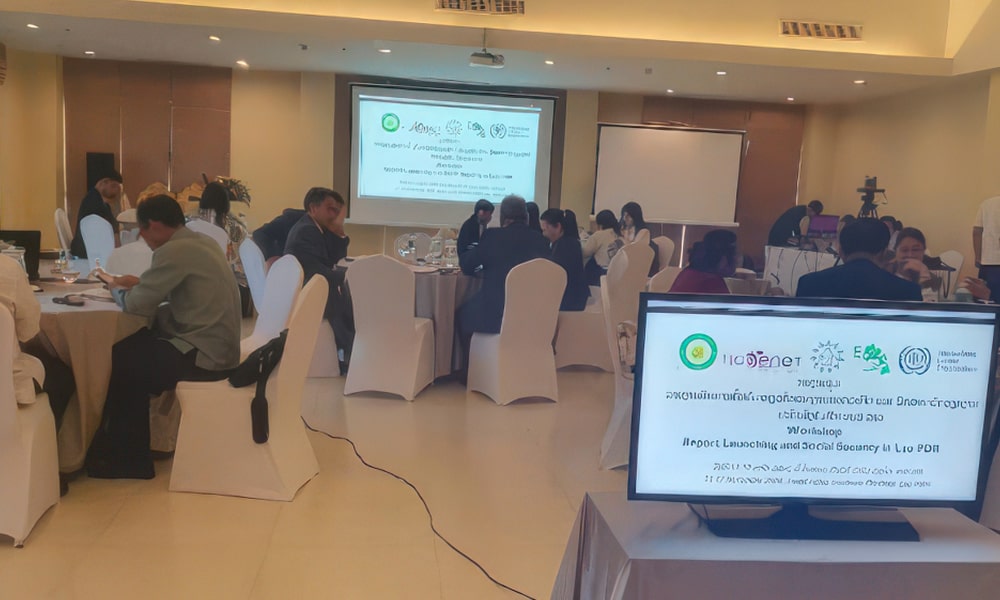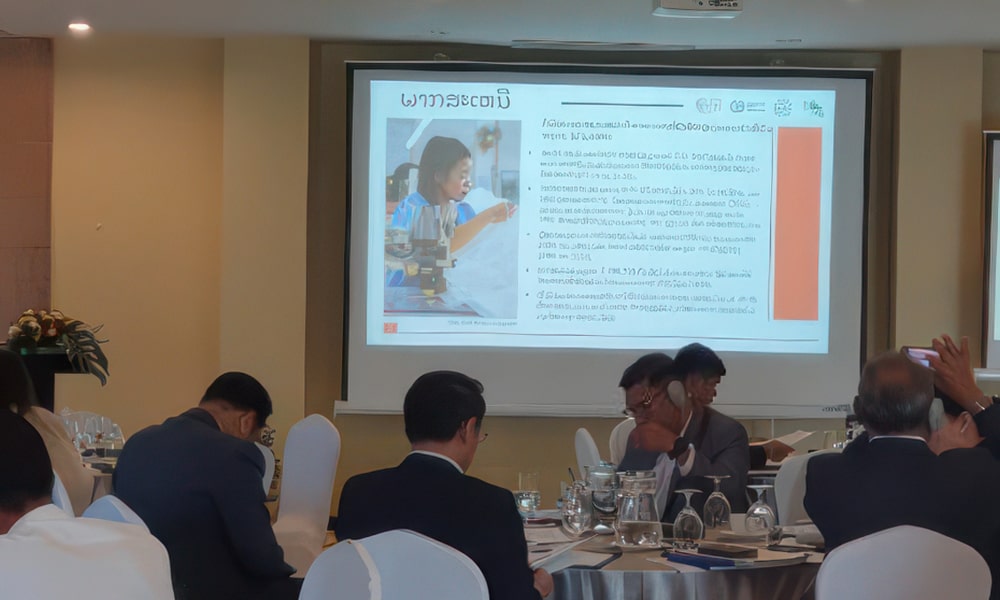By: Suntaree Saeng-ging, HNSEA Executive Director
On 11-12 November 2024, in Vang Vieng, Lao PDR, HomeNet Lao (HNL), along with HomeNet Southeast Asia, WIEGO, and the International Labour Organization, held a research presentation and panel discussion on the study “Improving Home-based Workers’ Access to Social Security in Vientiane Capital, Lao PDR”.
The event was attended by 31 participants, including leaders of home-based workers (HBWs), representatives from the Laos Trade Union Federation (LFTU), officers from the National Social Security Office (NSSO) and the Laos National Health Insurance Office, ILO officers, and representatives from Oxfam in Laos. The conference was chaired by the Deputy Secretary General of the NSSO, the Director of the China Partnership Program at ILO, and the HNSEA Executive Director.
The significant findings and recommendations from the research presented by ILO and HNL include the following:
On 11-12 November 2024, in Vang Vieng, Lao PDR, HomeNet Lao (HNL), along with HomeNet Southeast Asia, WIEGO, and the International Labour Organization, held a research presentation and panel discussion on the study “Improving Home-based Workers’ Access to Social Security in Vientiane Capital, Lao PDR”.
The event was attended by 31 participants, including leaders of home-based workers (HBWs), representatives from the Laos Trade Union Federation (LFTU), officers from the National Social Security Office (NSSO) and the Laos National Health Insurance Office, ILO officers, and representatives from Oxfam in Laos. The conference was chaired by the Deputy Secretary General of the NSSO, the Director of the China Partnership Program at ILO, and the HNSEA Executive Director.
The significant findings and recommendations from the research presented by ILO and HNL include the following:
- Conduct a study on the appropriate contribution fee for the voluntary scheme. Currently, the contribution fee is set at 9% of the minimum wage, which is the same rate as the compulsory scheme. This rate is too high for home-based workers and other sectors of informal workers to afford.
- Consider the possibility of government subsidies, recognizing that home-based workers and other sectors of informal workers contribute to the country's economic growth, just like factory workers. Lessons can be learned from the experiences of other countries in the region, such as Thailand and new applicants in the Philippines.
- Expand the short-term benefits under the Voluntary Social Security scheme to include work injury, unemployment, low-interest loans, and disaster-relief payouts, which are crucial for home-based workers and other informal worker sectors.
The conference also featured insights from two experts on best practices for expanding social insurance to informal workers: Mr. Mohamad Haron bin Othman, Head of the Self-employment Division at the Social Security Organization (SOCSO) in Malaysia, and Ms. Maria Rita, Senior Vice President of the Social Security Scheme in the Philippines.


